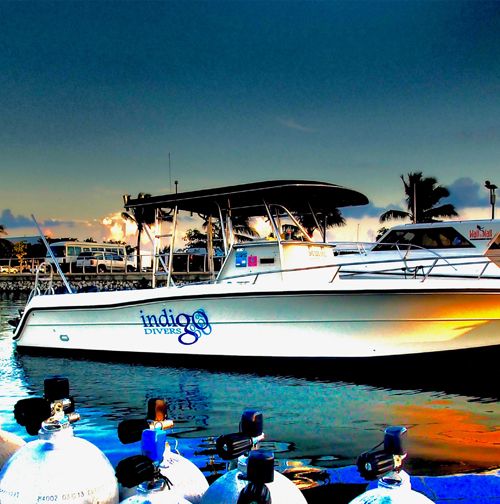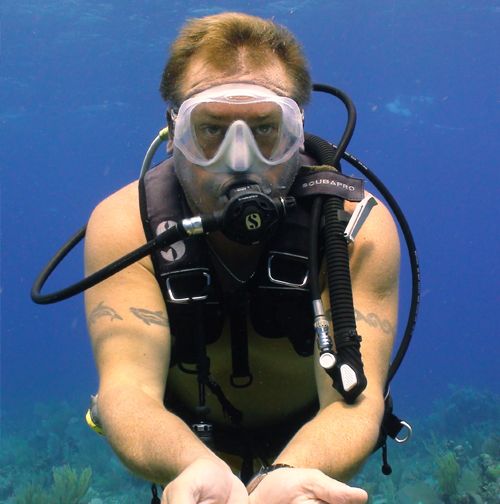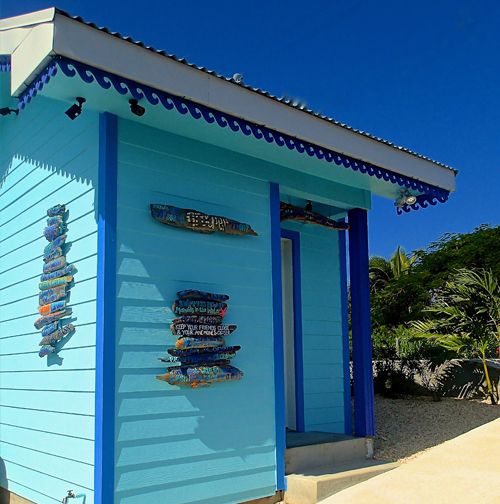 For a better experience on Indigo Divers - Grand cayman update your browser.
For a better experience on Indigo Divers - Grand cayman update your browser. “I’d like to be…. under the sea…. in an octopus's garden in the shade…!”
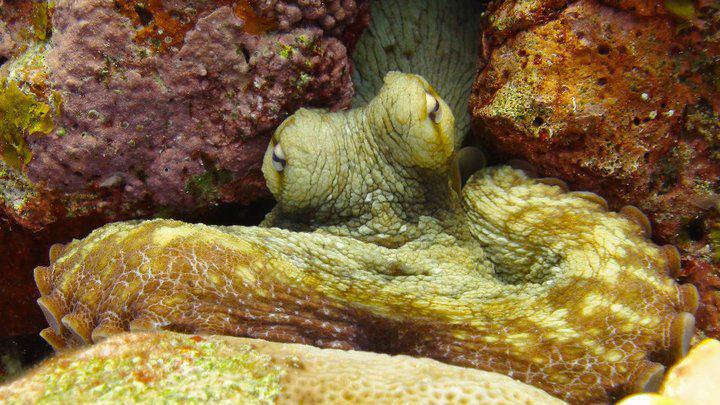 One of the most frequent requests from our divers is to find them an Octopus. They are an amazing creature to study, and the best time to see them in action is during a night dive in Grand Cayman.
One of the most frequent requests from our divers is to find them an Octopus. They are an amazing creature to study, and the best time to see them in action is during a night dive in Grand Cayman.
Caribbean reef octopuses are typically solitary and are able to quickly change color using specialized cells in their skin known as chromatophores. Within about 17 weeks the young reach about 75% of the adult size.
Male Caribbean reef octopuses are sexually mature in 140 days and females in 150 days. Females lay eggs in crevices or caves along the reef surface. The nest is guarded by the female for more than two months until the eggs hatch. During this time, she does not leave her nest to feed or for any other purpose.
The Caribbean reef octopus is a medium sized type of Octopus, with an overall weight of just over three pounds. this specific species is said to be among the most intelligent of them all, never staying for more than a couple of weeks in any one set location. The females that have laid eggs are easy to notice though. They will continue to hover over a given area until they die or their eggs hatch. They are able to mate when they are from 3 to 4 months of age.
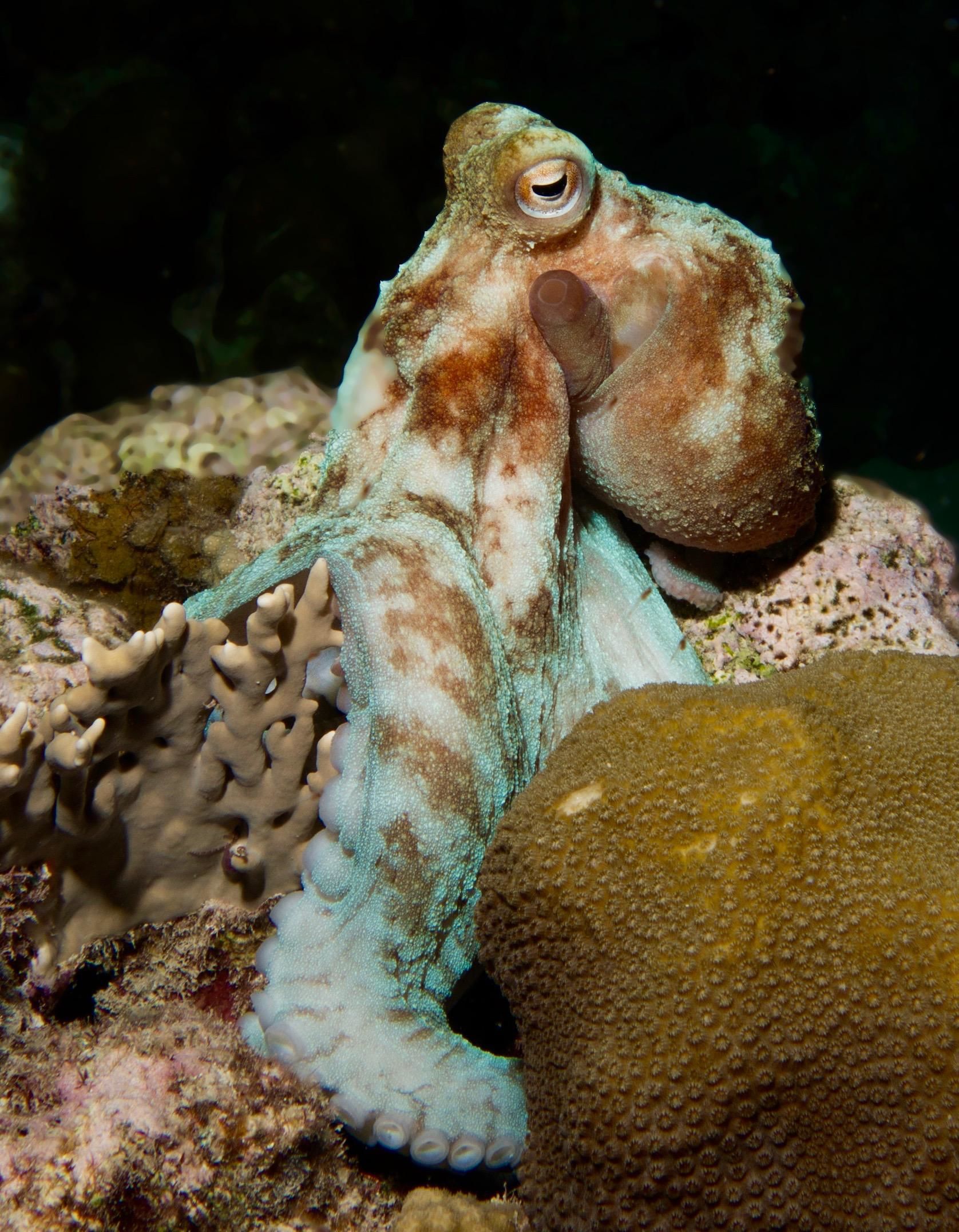 Typically during the day we offer 2 tank boat dives in Grand Cayman, but we conduct our excellent Cayman night dives from shore. Whilst we can’t guarantee an octopus, it’s not uncommon to spot two or three at our chosen location!
Typically during the day we offer 2 tank boat dives in Grand Cayman, but we conduct our excellent Cayman night dives from shore. Whilst we can’t guarantee an octopus, it’s not uncommon to spot two or three at our chosen location!
There can be as many as 500 eggs that she will release from her body. She will lay them in either January or February. The warmer the water temperature is the sooner she will release them. The incubation period will also be affected by the water. When it is warm they may only have 50 days or so before they hatch. In cooler temperatures it can be as long as 80 days though. The young offspring are amazing – able to move quickly through the water and to instinctively find food. They have a very quick growth rate too due to the whirlwind life span for them.
So if you love night dives and are determined to see an octopus - sign up, and we will do our best to find one for you! Remember you can include a night dive as part of your PADI Advanced Certification if you are considering further dive instruction in the Cayman Islands. We also offer a PADI Night Diver Specialty Certification which requires 3 training dives - what better way to increase your chances of spotting an octopus?!
Octopuses . Octopi . Octopodes ??
A debate that often comes up on the dive boat…. which is the correct plural form of Octopus? Miriam-Webster offers some interesting history… https://www.merriam-webster.com/video/octopus

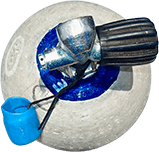 Contact Us
Contact Us 